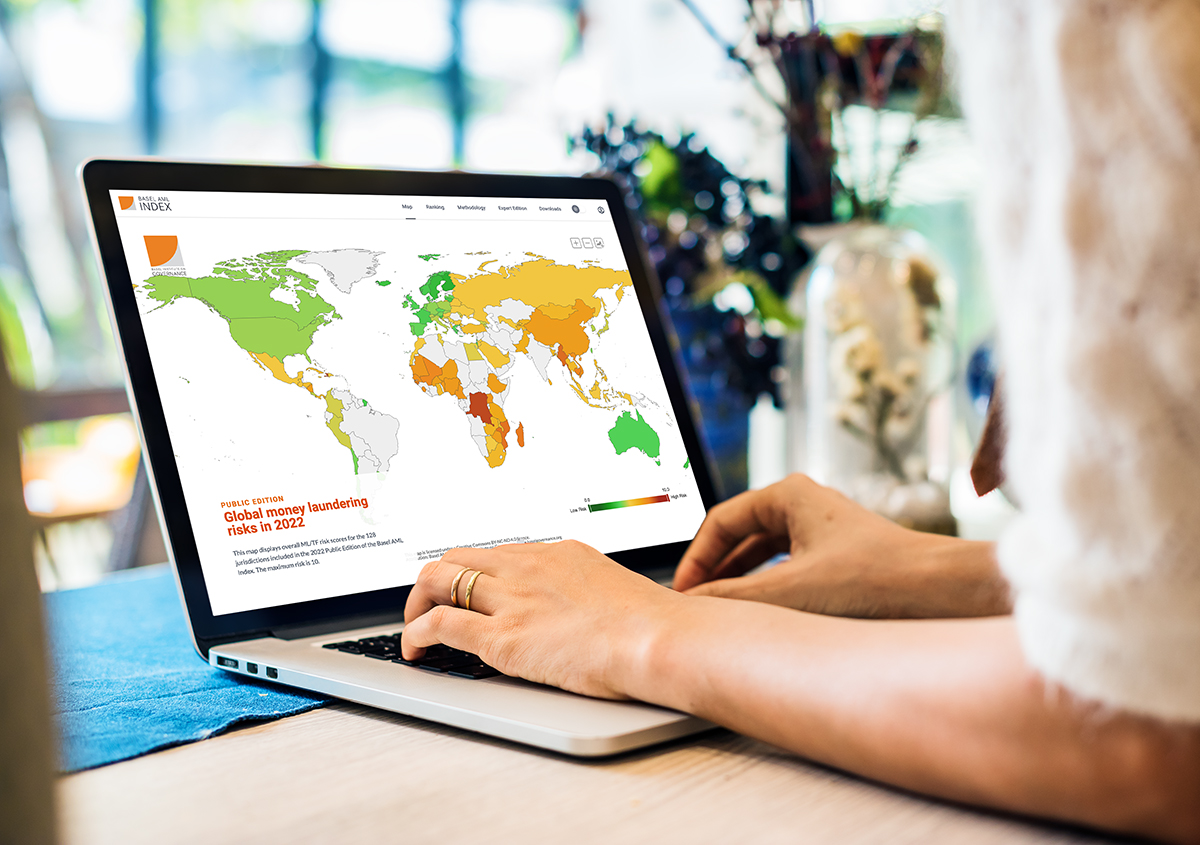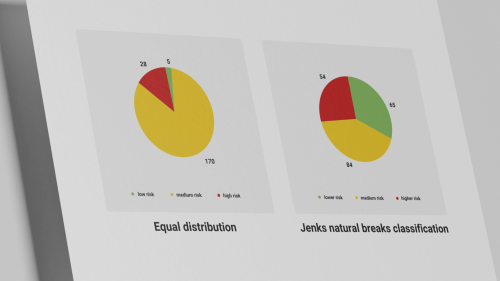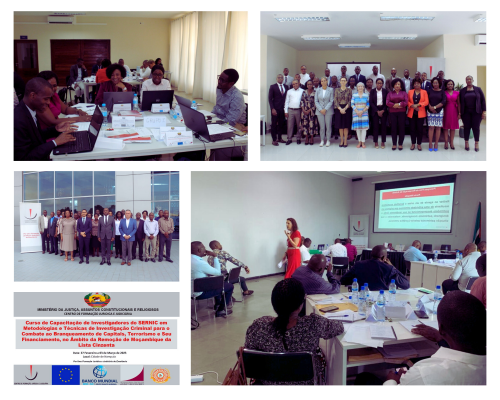Environmental crime data added to money laundering risk indicators in Basel AML Index

The Basel AML Index – the Basel Institute’s global money laundering index and risk assessment tool – is adding environmental crime data to its set of indicators of money laundering and terrorist financing (ML/TF) risk. The data will come from the Global Organized Crime Index.
The change will be implemented in the 11th Public Edition of the Basel AML Index, due out in September this year, as well as in the subscription-based Expert Edition from September onwards.
Environmental crime a growing money laundering threat
Crimes involving wildlife, minerals, fish, forests and waste not only threaten the health of our planet and sustainable livelihoods, but the integrity of financial systems. Such crimes are a highly profitable criminal enterprise, generating around USD 110 to 281 billion in illicit gains each year according to the Financial Action Task Force (FATF).
The FATF identifies environmental crimes as one of the designated predicate offences for money laundering and urges both the public and private sectors to do more to detect financial flows from environmental crimes.
Developed by the Global Initiative Against Transnational Organized Crime and first published in 2021, the Global Organized Crime Index goes some way to addressing a lack of reliable data on countries' risks related to environmental crimes. It covers 193 jurisdictions. The data is based on thorough desk research of publicly available information conducted by country/region-based experts. It has a well-documented methodology and a strong quality assurance process.
From the next edition, the Basel AML Index will include data on crimes involving flora, fauna and non-renewable resources. The data will appear in the category “Quality of AML/CFT framework” with a 5 percent weighting in the overall score. Environmental crime risks will therefore have the same weighting in the Basel AML Index as the current indicators on human trafficking and narcotics trafficking. The weighting of the Financial Secrecy Index will reduce accordingly from 20 percent to 15 percent.
Annual review: keeping up with ML/TF trends
The decision to add environmental crime data was made at the formal annual review meeting, which gathers a group of experts in AML/CFT, compliance and risk assessment. The annual review ensures that the Basel AML Index methodology and indicators remain valid and representative of current money laundering and terrorist financing risk trends.
Other key decisions were:
1 – To exclude data on four countries from the World Bank’s Extent of Corporate Transparency Index
The Extent of Corporate Transparency Index is part of the World Bank’s Doing Business report, which was discontinued in September 2021 following the publication of an investigation into data irregularities.
The data reflects corporate transparency in ownership stakes, compensation, audits and financial prospects. Transparency of this type of information in the business sector is a key aspect when considering money laundering risks, since secrecy in these areas allows the true ownership of assets to be hidden. In the Basel AML Index, it is included as an indicator in the category “Financial transparency and standards” with a 2.5 percent weight in the overall risk score.
Since there is no other public indicator that fully substitutes the Extent of Corporate Transparency Index, the Basel AML Index will continue to use the data until the World Bank releases its replacement to the Doing Business report. Data on Azerbaijan, China, Saudi Arabia and the United Arab Emirates will be excluded due to the identified discrepancies.
2 – To publish short reports on jurisdictions delisted from the FATF grey or black lists
As part of the assessment process of the Financial Action Task Force (FATF) and its regional bodies, a jurisdiction may be placed on a “grey list” (subject to increased monitoring) or “black list” (a high-risk jurisdiction subject to a call for action). This follows identified failings in how the jurisdiction addresses its ML/TF risks.
Being placed on the FATF’s grey or black lists has a negative impact on a jurisdiction’s investment climate, trade and capital flows.
The Basel AML Index Expert Edition dashboard highlights a jurisdiction’s placement on the FATF grey or black lists for informational purposes, but these lists are not used when calculating its overall risk score. This is because the Index already uses FATF data from Mutual Evaluation Reports and Follow-Up Reports as a significant component (35 percent weight) of the overall score.
The Basel AML Index will from now on publish special briefings on jurisdictions delisted from the grey or black lists. The briefings will cover the main issues that led to the listing, the action plan developed to address them, and publicly available data on how it was implemented. Find the first briefing on Malta here.
More
- The Basel Institute on Governance has developed and maintained the Basel AML Index since 2012 through its International Centre for Asset Recovery.
- The Public Edition of the Basel AML Index, with its accompanying report and infographics on money laundering risk trends, is published annually in August/September.
- The Expert Edition of the Basel AML Index is an ML/TF country risk-rating tool for compliance, risk assessment, policy and research purposes. The Expert Edition Plus option offers a detailed comparative analysis of the FATF Mutual Evaluation Reports and special reports on ML/TF risks in small jurisdictions. Subscription to the Expert and Expert Plus editions is free for public-sector, international, non-profit and academic organisations, plus independent journalists.




